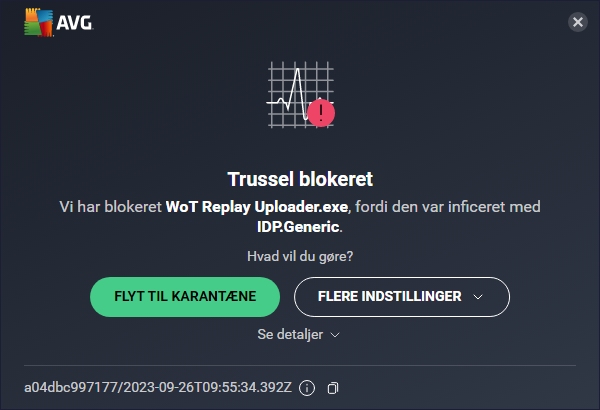Hi all 
Slight problem - AVG is detecting the exe as a virus now. I have tried to submit the file to AVG but because it’s over 60MB AVG cannot accept the files. You may be able to see the thread here:
https://support.avg.com/answers?id=9065p0000009SDsAAM
Can anything be done from GDG’s end perhaps please ?

OR, is it possible to remove unused librarys from the exe, thus making it smaller, which would be a good idea anyway but would would also help with this issue ?
Many thanks,
Zoe
1 Like
BTW - I’ll mention - I uploaded the file to Virustotal and it is clean. Even AVG say it’s clean  but on someone’s home computer, AVG say it’s detected as a virus !! They can’t make their minds up !
but on someone’s home computer, AVG say it’s detected as a virus !! They can’t make their minds up !
Heya all 
Just to let you know, AVG were actually pretty good and have said they have white listed the app. I’m now trying to see if I can get in their “Whitelisting Program”, in case it happens again.
I’ll let you know what happens.
All the best,
Zoe
Went through this process 4-5 years ago. Then when I updated my software, the fingerprint changed, and it was back to being id’ed as a virus. Never ending process but maybe they have changed now. I gave up trying to make AVG happy.
1 Like
Hi there 
Re. “1”: Not quite sure how this helps ?
Re. “2”: Ok. I’ll have to work out how that works. Thanks.
For 1), it’s because you reached the limit for the upload form for AVG 
2) See here:
https://www.exeoutput.com/help/security/codesigning/
1 Like
Hi All 
Just an FYI - I finally managed to join AVG/Avast Whitelisting Program. You get your own FTP account to upload to, which can take files bigger than 60MB. As far as I can see, the file you upload disappears from the upload folder when it’s been checked. Wait till AVG has a definition update, then try AV checkng your software. I uploaded one today. It was whitelisted within 3 hours.  I was quite impressed !
I was quite impressed !
Probably won’t be that fast every time though.
All the best,
Zoe
1 Like
![]()
